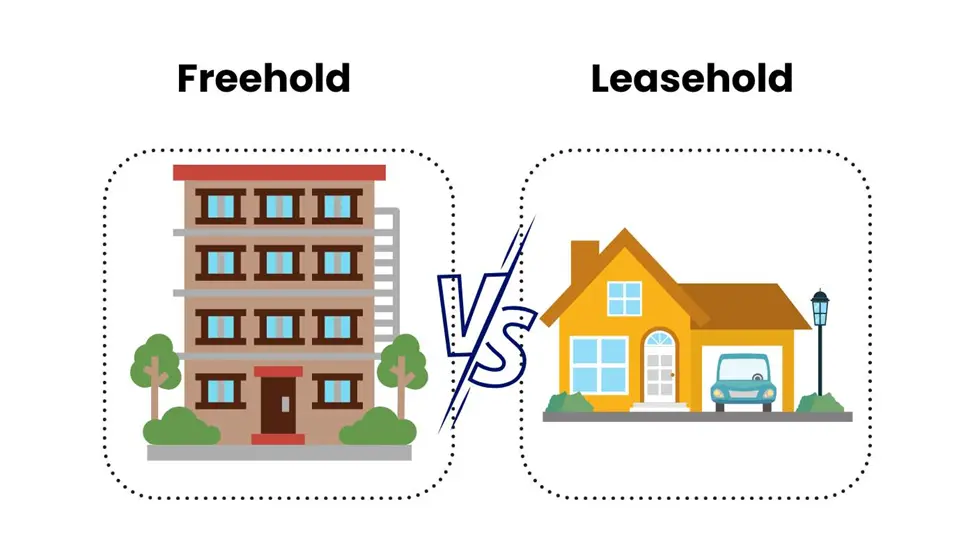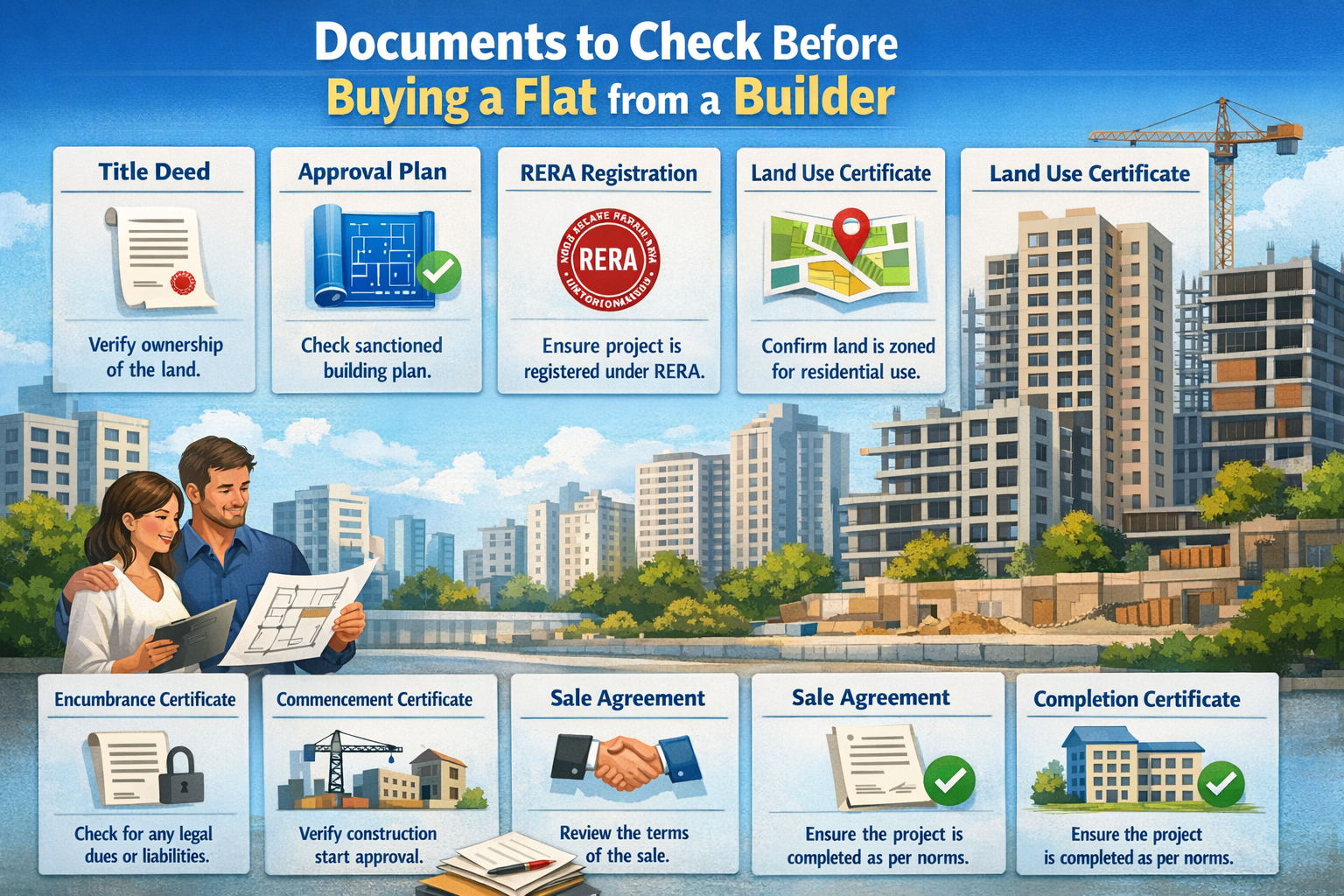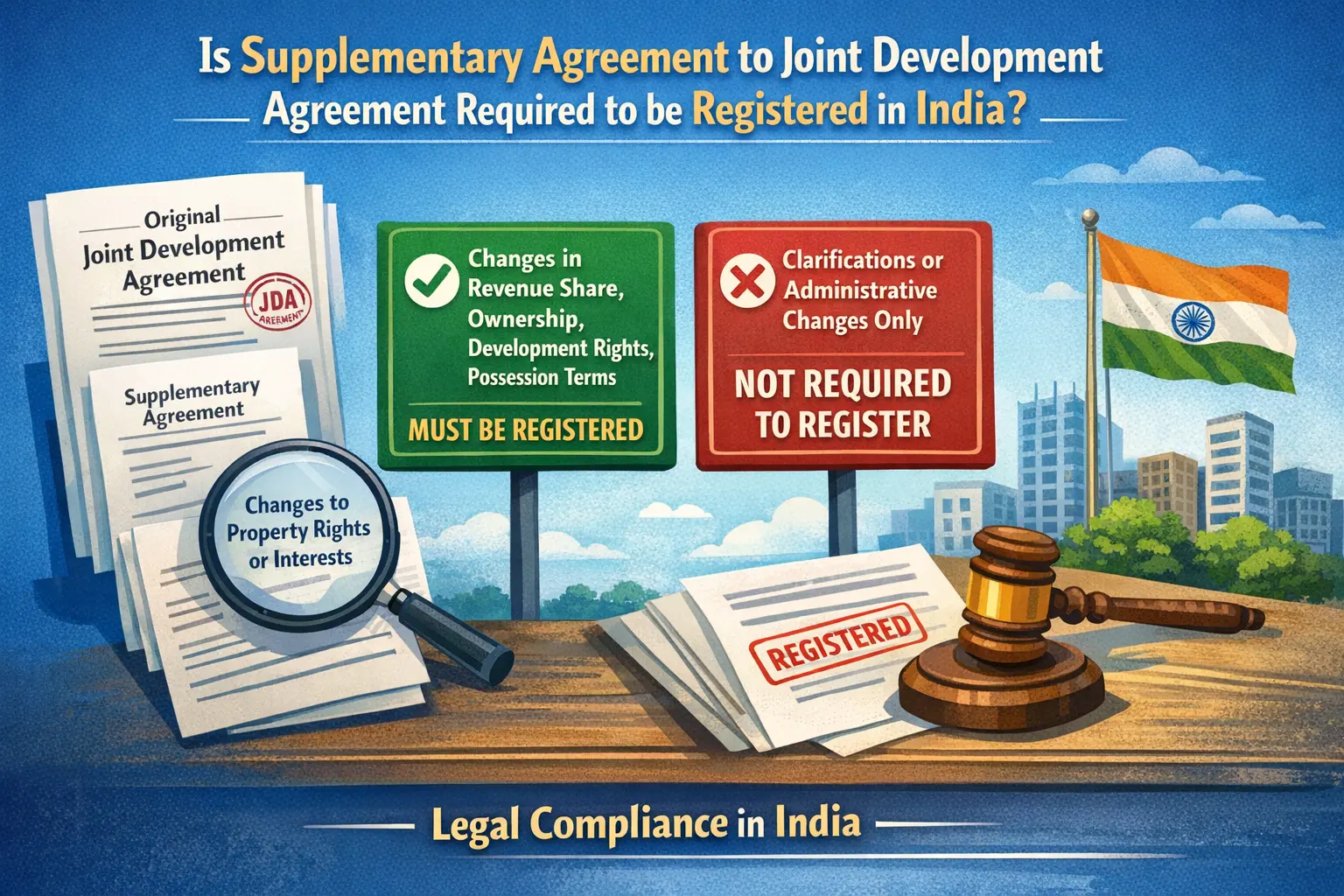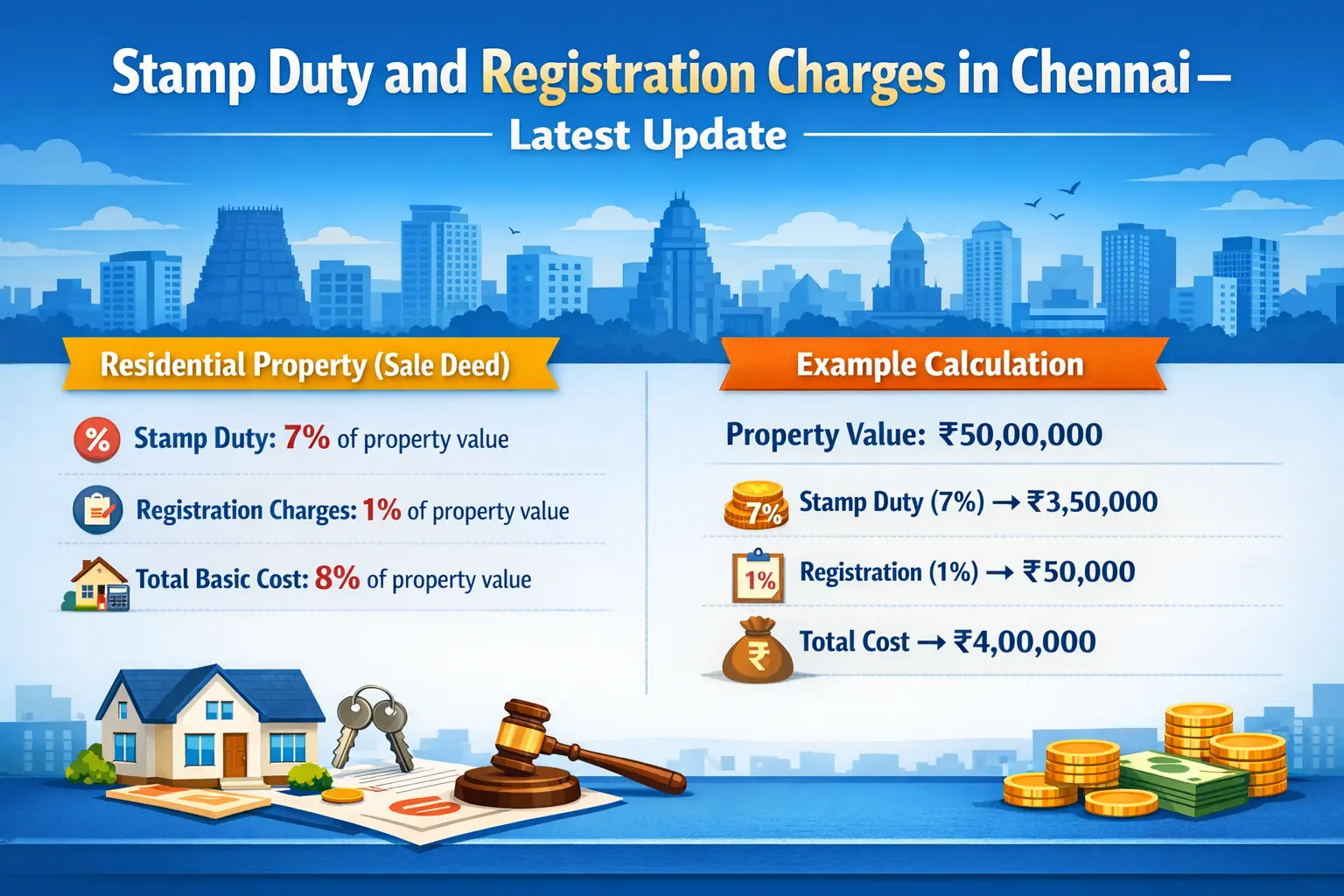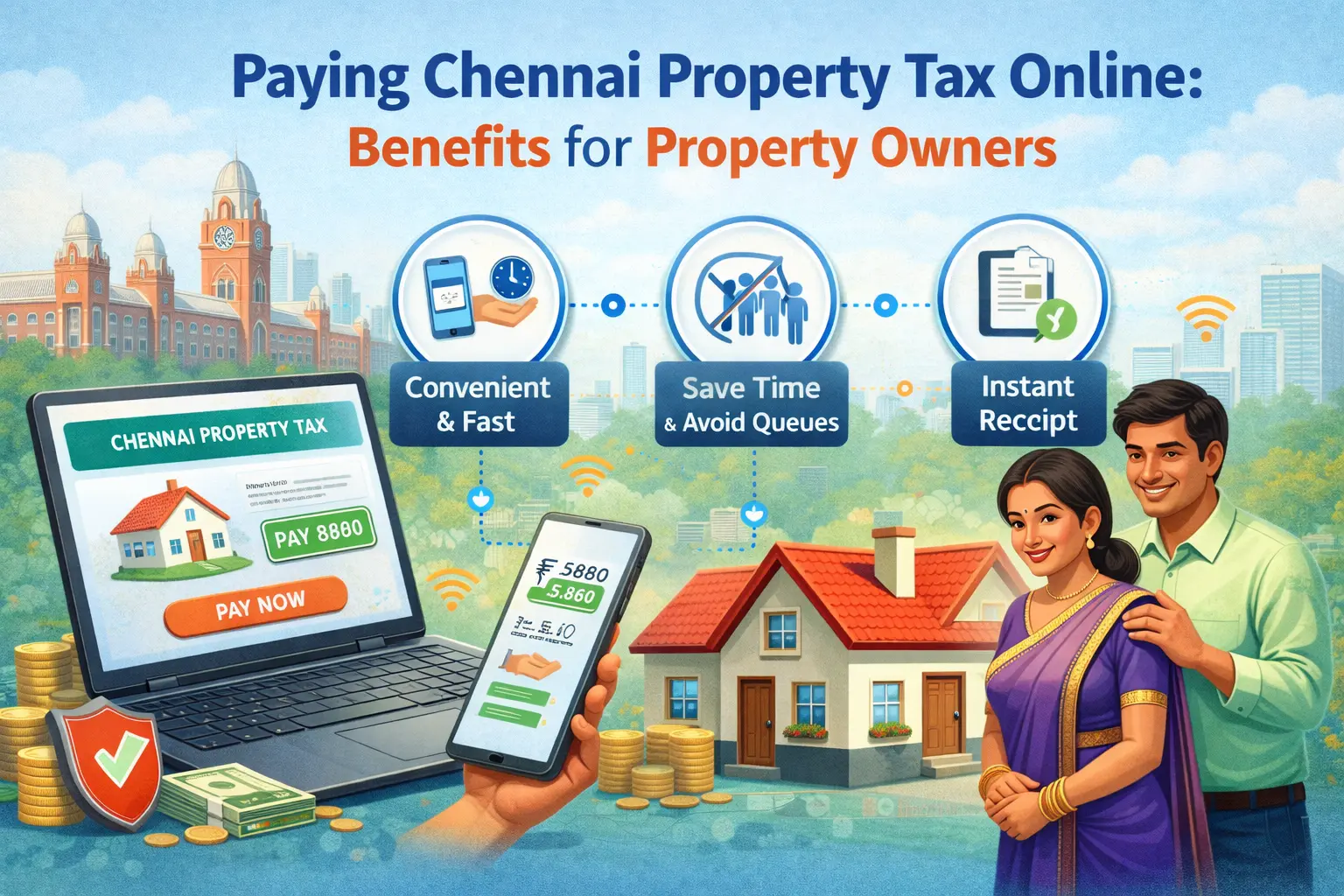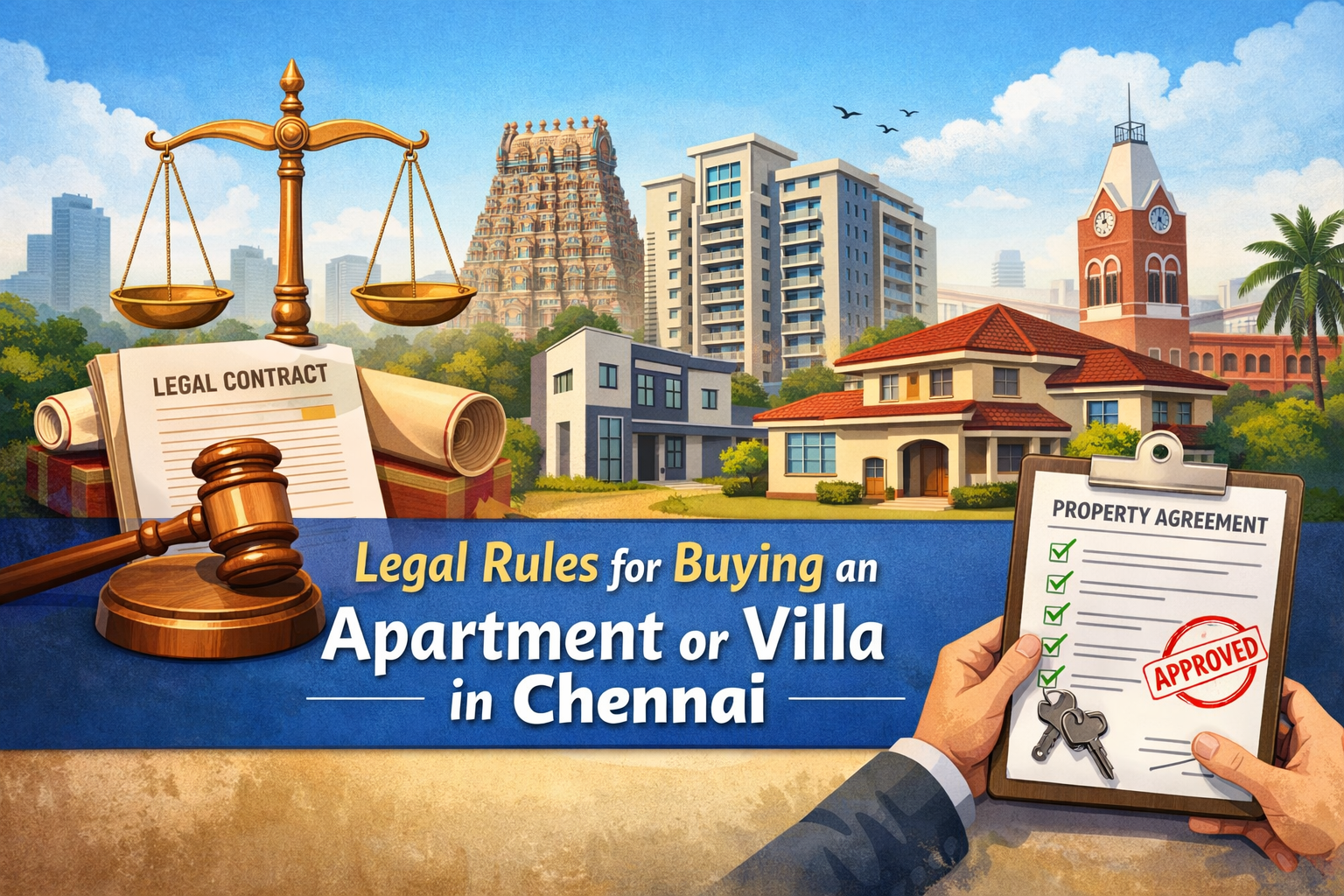1. Introduction
When you buy a property, you’re not just purchasing a building or house — you’re also buying certain legal rights attached to the land. The nature of these rights depends on whether the property is Freehold or Leasehold. Understanding the difference between the two is crucial for buyers, investors, and developers, as it affects ownership, duration, transfer rights, financing, and long-term value.
2. Meaning of Freehold Property
A Freehold Property means complete ownership of the property as well as the land on which it is built.
The word “freehold” literally means ownership of the property for an indefinite time, i.e., “holding it freely” without any limitation of years or conditions imposed by another party (except by law).
- The owner has absolute ownership rights over the property.
- Ownership is permanent and heritable — it can be passed to heirs through inheritance or will.
- The owner has the freedom to sell, lease, transfer, or modify the property at any time without seeking permission from any authority (except local municipal regulations).
Example
If you buy a freehold house from a developer, you own:
- The land on which the house is built, and
- The structure itself, forever.
You can sell it, renovate it, or even demolish and rebuild, provided you follow municipal building laws.
3. Meaning of Leasehold Property
A Leasehold Property means that the buyer (called the lessee) does not own the land permanently. Instead, they are given the right to use the property for a specific period of time as per the lease agreement signed with the lessor (actual landowner).
- The lease period can vary, commonly 30, 60, 90, or 99 years, sometimes up to 999 years.
- During this time, the lessee can use, occupy, or even sell the property (subject to lessor’s permission).
- Once the lease term expires, the ownership of the land and property reverts back to the lessor — unless the lease is renewed.
Example
If you purchase a flat built on land leased from a government authority for 99 years, you own the flat for 99 years only.
After that, you must renew the lease (by paying renewal charges) or surrender the property.
4. Ownership Rights
Freehold Property
- You own both the land and the building.
- You are the absolute owner without dependence on any superior landlord.
- Ownership is perpetual — no expiry date.
- You can transfer, sell, gift, or bequeath it without restrictions (as long as legal norms are followed).
Leasehold Property
- You own only the structure, not the land.
- The land belongs to the lessor (often the government or a development authority).
- You can use the land/building for the lease period only.
- Ownership automatically reverts to the lessor after the lease ends unless renewed.
5. Duration of Ownership
Type Duration
Freehold Unlimited / Permanent
Leasehold Fixed term ( 30 - 99 years, sometimes 999 years )
In a leasehold, as years pass, the remaining lease period decreases, which can affect market value, bank loans, and saleability.
6. Purchase Price and Value
- Freehold Property:
Higher initial cost because it includes ownership of land and building permanently.
However, it gives better appreciation and resale value in the long run.
- Leasehold Property:
Lower purchase price since land ownership is not included.
But over time, the value decreases as the remaining lease term shortens.
Buyers are hesitant to buy properties with less than 30–40 years left on the lease.
7. Financing and Mortgage
Freehold:
- Banks and housing finance companies easily provide loans because ownership is clear and permanent.
- The property can serve as full collateral.
Leasehold:
- Financing becomes difficult if the remaining lease period is short.
- Most banks require at least 30 years of lease left after the loan tenure ends.
- For example, if you want a 20-year home loan, the lease must have at least 50 years remaining.
8. Legal Rights and Restrictions
Freehold Property:
- Owner has full legal rights.
- Can renovate, modify, sell, rent, or transfer without needing anyone’s approval (except for local permissions).
- No recurring ground rent or renewal fee.
Leasehold Property:
- Rights are restricted by the lease agreement.
- Lessee may need lessor’s consent to transfer, sublet, or make major alterations.
- Often subject to ground rent or annual lease charges.
- When lease expires, legal ownership automatically goes back to the lessor.
9. Maintenance and Responsibilities
Freehold:
The owner is fully responsible for all maintenance, taxes, and repairs.
Leasehold:
The leaseholder typically handles day-to-day maintenance, but the lessor may handle land-related issues.
Some lease agreements specify shared maintenance or payment of annual service charges.
10. Renewal and Expiry
Freehold:
- Ownership continues forever.
- No renewal is ever needed.
Leasehold:
At the end of the lease period:
- The lessee can apply for renewal, usually by paying a renewal or extension fee.
- The lessor can refuse renewal or offer new terms.
- If not renewed, the property reverts to the lessor.
This uncertainty can reduce the property’s resale value as the lease nears expiry.
11. Transfer and Sale
Freehold:
Easy and straightforward. The owner can sell the property anytime through a sale deed.
Leasehold:
Transfer usually requires approval from the lessor (like a development authority).
The lessee must pay a transfer fee or administrative charge.
The buyer becomes the new lessee for the remaining lease term.
12. Market Value and Appreciation
- Freehold Properties appreciate faster and consistently because they represent full ownership.
- Leasehold Properties appreciate slowly, and their value begins to decline once the remaining lease period becomes short (below 50 years).
- Investors prefer freehold for long-term investment stability.
13. Conversion from Leasehold to Freehold
In many countries (especially India), governments allow conversion of leasehold properties to freehold.
Process:
- Submit an application to the concerned development authority (e.g., DDA, L&DO, Noida Authority, etc.).
- Pay conversion charges, stamp duty, and processing fees.
- Provide necessary documents (lease deed, possession letter, NOC, etc.).
- Once approved, a Freehold Conveyance Deed is issued, granting permanent ownership.
This conversion increases the property’s market value and makes it easier to sell or mortgage.
14. Practical Example
Situation Freehold Example Leasehold Exaple
Ownership You buy a house with land in your name forever You buy a flat on government leased land for 99 years.
Rights You can build, modify, or sell freely You need approval for major changes or transfer
After 99 years Still yours Ownership goes back to lessor unless renewed
Inhertance Can be inhertied by your children Inherited only for remaining lease period.
Bank Loan Easily available Restricted id lease period is short
15. Advantages and Disadvantages
Freehold Property
Advantages
- Complete and permanent ownership
- Easy to sell, transfer, or mortgage
- Better appreciation and long-term security
- No lease renewal worries
- High resale value
Disadvantages
- Higher purchase price
- Full responsibility for maintenance and taxes
Leasehold Property
Advantages
- Lower initial cost
- Suitable for short-term or medium-term usage
- Often available in prime locations (since many urban lands are leasehold)
Disadvantages
- Temporary ownership (expires after lease)
- Renewal costs and uncertainty
- Requires permission for sale/transfer
- Harder to get bank loans for short leases
- Value decreases as lease period reduces
.Conclusion
The main difference between freehold and leasehold property lies in ownership and duration.
- A Freehold Property gives complete and permanent ownership of the land and building, higher value appreciation, and full freedom of use.
- A Leasehold Property, on the other hand, gives temporary ownership rights with restrictions, though it may be cheaper initially.
For long-term security, ease of transfer, and investment value — Freehold is always preferable. However, Leasehold can be a good option for those with a limited budget or who need property for a shorter duration.
https://www.livehomes.in/blogs
